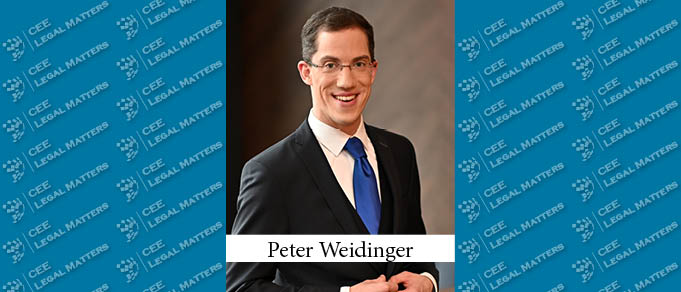According to experts, Ukraine ranks fourth in the world in export of IT-products; i.e., software. It is not a rare phenomenon for Western counter-parties buying software to encounter a low level of pre-sale clearance. In other words, the Ukrainian sellers are not always able to confirm their title rights to the software they dispose of, potentially exposing foreign buyers to the risk of IP-related claims of third parties.
Expat on the Market: Interview with Christopher Noblet of Hogan Lovells
English lawyer Christopher Noblet has been based on Hogan Lovells' associated Budapest office since 2000 and leads its transactional and real estate team in Hungary. He studied law at King's Kollege London.
Editorial: Rockin’ and Rollin’
It’s been a busy period here at CEE Legal Matters, as we ramp up for the Dealer’s Choice conference, the Deal of the Year Awards Banquet, and the two-day GC Summit, all happening between June 6-8 in Prague. Putting together one major event is already a serious challenge – putting together three major events, running back-to-back-to-back (while, of course, keeping up with the demands of the CEE Legal Matters website and this here monthly magazine), is … well, as I said, it’s been a busy period.
Significant Changes on the Hungarian Renewables Market: New Limitations and Opportunities
While no more applications for Micro Projects (those below 0.5MW) can be submitted under Hungary’s very generous mandatory off-take system since the end of April 2018, the Government seems to have acknowledged that the projects already licensed under the subsidy regime may not be physically implemented within the strict deadlines set forth in the original legislation. Therefore, it is now possible for entities that applied for licenses after January 1, 2016 to ask for a three- years extension to complete their projects without any sanction. This is good news for license-owners and potential investors, as they have a reasonable amount of time to manage the relatively burdensome permitting proceedings and can also secure project finance. This is also good news for the Hungarian state budget because the first heavy payments to the projects under the mandatory off-take system will be delayed by a few more years.
Developments in Development: A Hungarian Round Table
The Hungarian real estate and housing market is experiencing golden days. Although the market took a serious hit during the financial crisis in 2008, today enormous sums are again being invested in office buildings, shopping malls, hotels, residential areas, and retail. In order to map the underlying reasons behind the market’s boom, and to better understand how the country is dealing with the high demand for development lands and properties, CEE Legal Matters sat down with six Hungarian lawyers specialized in Real Estate & Construction and a Legal Counsel from Prologis, a Real Estate & Supply Chain Logistics company.
Gauging the GDPR in the Czech Republic
On May 25, 2018, the General Data Protection Regulation finally came into effect, imposing new requirements on organizations within the European Union and on those outside the EU that offer goods or services to EU data subjects or monitor their behavior. To learn more about the state of readiness in one such country, we spoke to Schoenherr attorney and Data Protection specialist Eva Bajakova in Prague.
GDPR Misconceptions
The GDPR comes into effect on May 25, 2018. Since data processing concerns a wide range of activities, very few companies or entrepreneurs will be unaffected. Numerous articles and discussions have been posted about the GDPR in the media, some of which contain false or misleading information and therefore give rise to concern, especially considering the possibility of high penalties. Failure to adopt national implementing legislation does not help the situation either. In this article we would like to highlight some of this misleading information and explain the inaccuracies.
Facing the Public After the GDPR: How to Draft Privacy Notices
Based on the transparency requirements of the GDPR, companies must now provide more detailed information on data processing. The usual form of relaying this information to the public is through a privacy notice. Now that May 25, 2018 is fast approaching and companies are working towards GDPR compliance, such privacy notices must be finalized.































